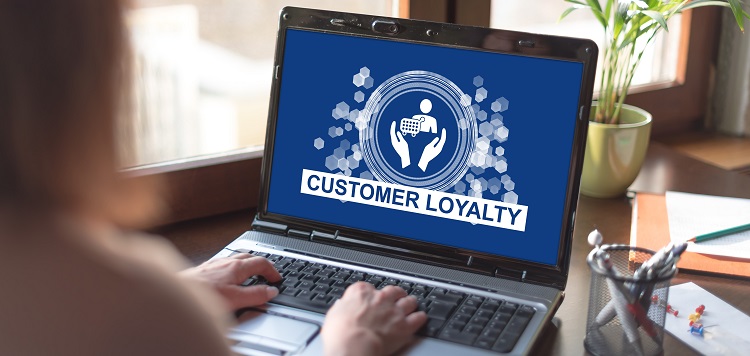In today’s fast-paced and digital world, customer loyalty can make or break a business. However, many businesses claim to have loyal customers when there is often a significant disconnect between their beliefs and reality. This is known as the Loyalty Gap, which arises when there is a gap between the percentage of customers a company thinks are loyal and the smaller number of customers who are actually loyal. The purpose of this article is to clarify this concept and emphasize the significance of cultivating genuine customer loyalty.
A customer who keeps returning
One of the most frequently misunderstood concepts in business is customer loyalty. The error often occurs when companies assume that repeat customers equate to genuine loyalty, which is not always the case. As previously mentioned, the Loyalty Gap exists when companies misclassify repeat customers as loyal customers when that is not their reality. Thus, it is crucial for companies to comprehend why customers keep choosing them as their vendor. Customers can come back because of factors such as convenience, pricing, location, or exceptional customer service. A clear comprehension of these factors assists firms in distinguishing and developing authentic loyalty in their clientele.
Customers who make purchases solely based on low prices
Another common reason that customers return to a business is due to low prices. While this may seem like a great opportunity to develop customer loyalty, the reality is that loyalty based on price is not genuine. Customers who are loyal to price rather than the brand will switch to a more affordable option the moment it becomes available. To establish real loyalty, businesses must prioritize value-based relationships with their customers. This means building a relationship that goes beyond the price and focuses on the entire customer experience.
Location-based loyalty programs offer rewards to customers based on their geographical location or proximity to a business.
Another key factor that may contribute to repeat business is location. While convenience is an essential consideration when developing a business, location should not be confused with brand loyalty. Customers who are loyal to a brand will stick with it regardless of the location. Therefore, location-based loyalty should only be considered as a secondary factor when it comes to true brand loyalty.
The difference between satisfied and loyal customers is that satisfied customers may have had a good experience with a product or service but are not necessarily committed to continuing to use it. Loyal customers, on the other hand, not only have a positive experience but also have an emotional connection and repeat business with the company. They are more likely to recommend the product or service to others and continue to do business with the company even when faced with more attractive options. Developing loyal customers is essential for businesses as it can lead to increased revenue and brand loyalty.
Characteristics of Loyal Customers
Loyal customers can be identified by several traits, including:
1. Repeat purchases: Loyal customers are more likely to make repeat purchases and to continue doing business with the same company.
2. Positive feedback: They provide positive feedback on social media, review sites, and customer feedback surveys, which reflects their satisfaction with the company’s products or services.
3. Brand ambassadorship: Loyal customers often tell their friends, family, and colleagues about the company’s products and services, becoming brand ambassadors and helping to generate more business through word-of-mouth marketing.
4. Commitment to the brand: They have a strong commitment to the brand, considering themselves part of the company’s community and feeling a sense of loyalty towards it.
5. Willingness to pay more: Loyal customers may be willing to pay more for a product or service from their favorite brand, because they value the quality and overall experience associated with it.
Understanding the traits and behaviors of loyal customers is crucial. A loyal customer is not simply someone who repeatedly purchases from a brand; they are also willing to spend more money, leave positive reviews, and actively recommend the brand to others. They are usually devoted to the brand and consider it a part of their identity. Consequently, identifying loyal customers and nurturing that loyalty can bring significant benefits to a business.
Determining why customers return
As we discussed earlier, businesses should not assume that customers who continue to return are necessarily loyal. It is essential to understand why they keep coming back. Conducting surveys or performing data analysis can provide valuable insights into the reasons behind repeat business. Factors such as customer service, product quality, and convenience are all crucial to building customer loyalty. Therefore, businesses should use this information to enhance the overall experience and foster customer loyalty.
Cultivating customer loyalty is an important aspect of any business
Developing and nurturing customer loyalty necessitates effort and dedication. Even though there are no shortcuts, businesses can follow best practices to create an outstanding customer experience. These include enhancing the quality of products, dedicating resources to customer service, personalizing the customer experience, and investing in customer loyalty programs. By prioritizing these elements, businesses can establish an emotional connection with their customers, ultimately resulting in genuine brand loyalty.
Customer loyalty is crucial to the success of any business, and it is vital to understand it in today’s dynamic business landscape. The Loyalty Gap often arises when companies mislabel repeat customers as loyal, when, in fact, they are not loyal in the true sense of the word. Therefore, it is essential to understand why customers keep returning and focus on fostering genuine loyalty. Price or location-based loyalty is not the same as brand loyalty, and satisfied customers are not synonymous with loyal customers. Instead, businesses should aim to provide personalized and exceptional customer experiences, prioritize customer service, offer high-quality products and utilize customer loyalty programs. By doing so, they can create passionate, invested brand advocates who will support and promote their business for years to come.

